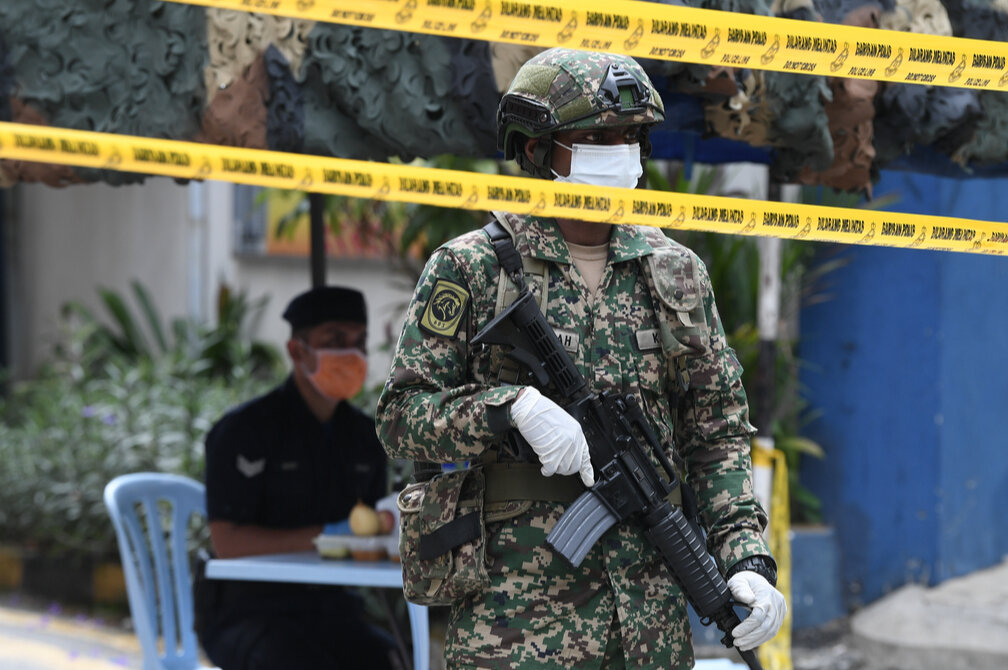Saving Lives and Defending Human Rights: An Urgent Agenda for Philanthropy
/hairul_nizam/shutterstock
We find ourselves at an unprecedented moment in the history of modern philanthropy. We are operating at the intersection of an extraordinary global pandemic and longstanding human-made divides. Without a doubt, COVID-19 magnifies these human-made divides in political and economic systems worldwide: glaring disparities in wealth, unequal access to healthcare and ineffective healthcare systems, lack of government transparency, an increasing wave of authoritarianism among political leaders, gender inequality, racism, marginalization and attacks on those who are not part of the mainstream, especially ethnic and religious minorities and LGBTQI+ people.
And, though the novel coronavirus attacks regardless of wealth or situation, we know that wealth and other disparities exacerbate the situation for those who have the least. Moreover, the pandemic is mapped on to a world gripped by authoritarian governments such as those of Nicaragua, India and Burma, to name a few, where democracy and human rights are under unrelenting attack by the very same leaders who must now respond to this crisis. In our own country, incompetent political leadership has put our own population at risk, while forsaking the traditional role of the United States as global leader.
As a human rights funder with 35 years of experience responding to disasters and humanitarian crises in the Global South, we have our work cut out for us. Yet, as we find our way at this historic juncture, we know that we must offer two fully aligned responses: an immediate, urgent, life-saving response, alongside a long-term approach focused on supporting human rights for the most stigmatized and oppressed.
AJWS’s social change strategy centers on investing in local activist organizations in developing countries and connecting them to larger social movements, global networks and institutions. We don’t bring American experts in when disaster strikes; rather, we rely on those whom we support to chart the course for their own countries and communities for the short and long term. We’ve done this for 35 years in the wake of earthquakes, tsunamis, genocides and other crises, with a particular focus on reaching communities that are often left out of mainstream relief efforts. Our grantees respond to direct needs in the wake of disasters, while also challenging the powers in their countries to guarantee human rights. In 2020, these local organizations and social movements are our best hope for tackling this pandemic and for creating the world we want to see when we come out on the other side.
Our grantees in Africa, Asia, Latin America and the Caribbean need our flexibility and unyielding support to fight on two fronts—against the pandemic and for human rights. That’s why we have made our current grants even more flexible to enable grantees to use funding to address critical needs as they arise. We are increasing the size of our grants to grantees who are fighting COVID-19 and associated human rights abuses head-on, and are funding new organizations providing direct support such as sanitary supplies and food to vulnerable communities. Some are leading community education campaigns in languages such as Rohingya and Kreyol, while others are battling for the rights of vulnerable workers.
For example, in Haiti, Sosyete Animasyon Kominikasyon Sosyal (SAKS), a community media nonprofit, fights for civil and political rights for all Haitians. As trusted messengers, they have already produced five educational radio messages about preventing and mitigating COVID-19, which are now being broadcast on a network of community radio stations.
In India, Kashtakari Panchayat signed the Alliance of Indian Wastepickers appeal to the prime minister, demanding safety for wastepickers and informal waste collectors, some of the most vulnerable people in India. These wastepickers continue to collect, transport and sort waste on a daily basis, exposing themselves to waste material from over 10 million households, putting them at grave risk for infection.
In Uganda, Human Rights Awareness and Promotion Forum (HRAPF) mobilized immediately after security forces and a town mayor violently stormed a shelter and arrested 23 LGBT people who were accused of willfully spreading the virus, despite having been in compliance with quarantine orders. HRAPF is providing emergency legal support and critical food and medication to those in custody, and is giving shelter to those released from prison who have nowhere else to go.
Systemic change philanthropy is about investing smartly and adaptively as this global crisis unfolds. We are investors striving to change the fundamental unfairness in the world. We can see possibility in the pain of this pandemic by supporting those around the world who are, by necessity, striving to survive, while seeking transformative systemic change in their countries. In short, this pandemic offers us a “philanthropic invitation” to support the struggle to overcome underlying structural deficits—an invitation that needs our focused attention now more than ever.
Tragically, our national political leadership has been self-serving, nationalistic and myopic. As American philanthropists, systemic change strategists and investors, we must exercise our leadership based both in the science of stopping pandemics and the knowledge that local human rights activists and social movements are essential catalysts for both short- and long-term change.
Robert Bank is President and CEO of American Jewish World Service, the leading Jewish organization working to fight poverty and pursue social justice in the developing world through philanthropy and advocacy.









